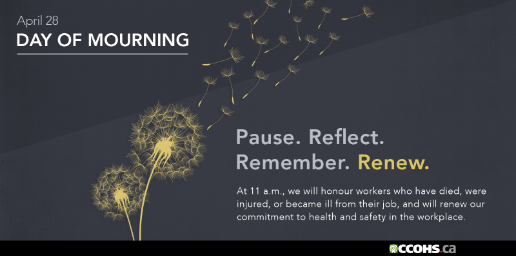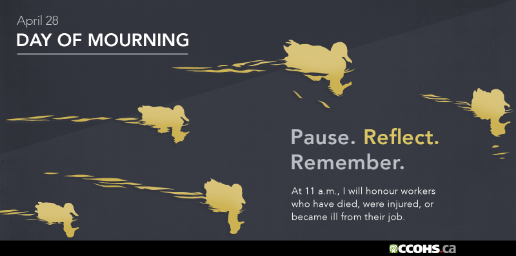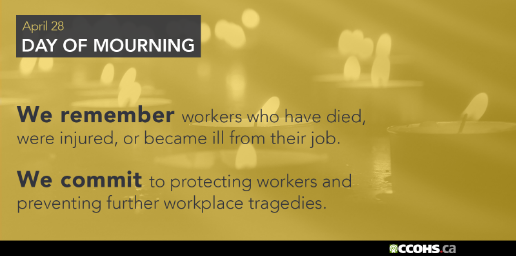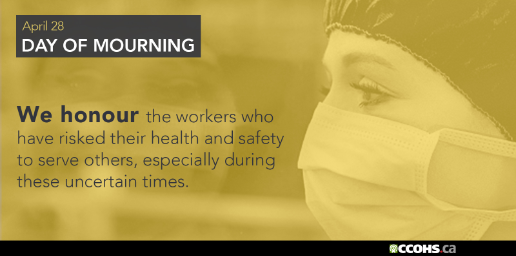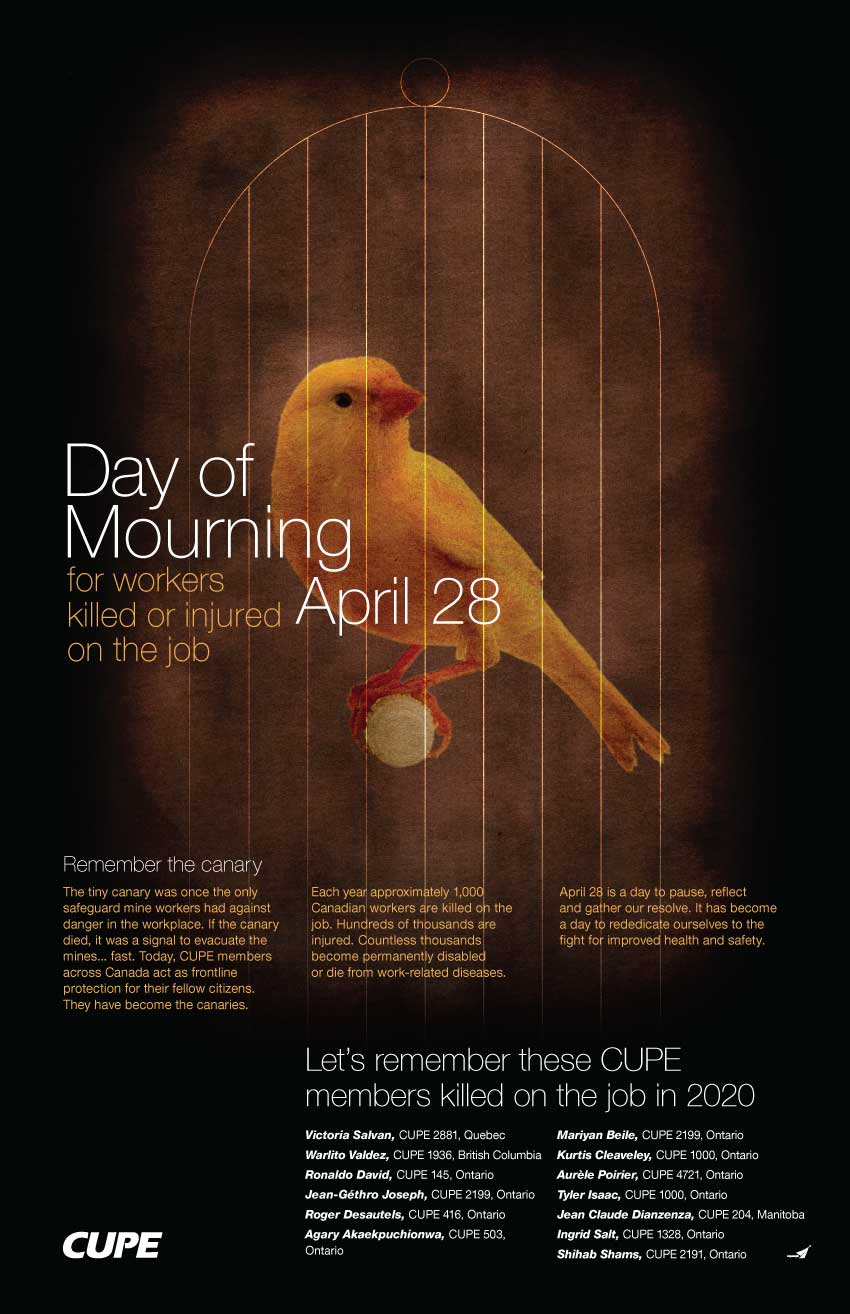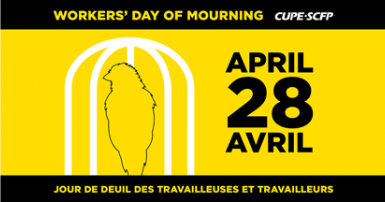Unifor calls for pandemic protection for workers on National Day of Mourning
TORONTO– As Unifor prepares to mark the National Day of Mourning on April 28, the union is calling for immediate government action to provide pandemic protection for workers.
“The pandemic has starkly revealed inequities in our workplaces, with many workers continuing to offer essential services, despite the risks to their health and to that of their families,” said Unifor National President Jerry Dias. “No one should have to die to make a living, but provincial governments continue to reject pandemic measures needed to protect workers.”
Sadly, 19 Unifor members lost their lives since the last Day of Mourning, either on the job or to COVID-19. The seven Unifor members who died from COVID-19 worked in a variety of sectors, including long-term care, warehouse and manufacturing. In their memory, Unifor is continuing to advocate for priority vaccine access for all workers who must leave the house, permanent paid sick days, paid vaccination time and increased rapid testing.
April 28 marks the National Day of Mourning, to pay tribute to workers who died due to workplace injury and occupational disease and recommit to improve health and safety in the workplace. This year’s even takes on special significance during the heightened safety concerns of the COVID-19 pandemic.
Related links:
- Brian Pallister stands alone as last paid vaccination leave holdout in the west
- Ford fumbles again as COVID-19 rages across Ontario workplaces
- Paid sick days must be universal, sufficient and permanent
- Unifor demands pandemic pay and vaccine access for grocery workers
- New third-wave restrictions highlight urgent need to vaccinate all essential workers now
- New poll shows vast majority of Ontarians in favour of legislated paid sick days
- Essential workers speak out on need for vaccination access and paid sick days
Unifor is Canada’s largest union in the private sector and represents 315,000 workers in every major area of the economy. The union advocates for all working people and their rights, fights for equality and social justice in Canada and abroad, and strives to create progressive change for a better future.


